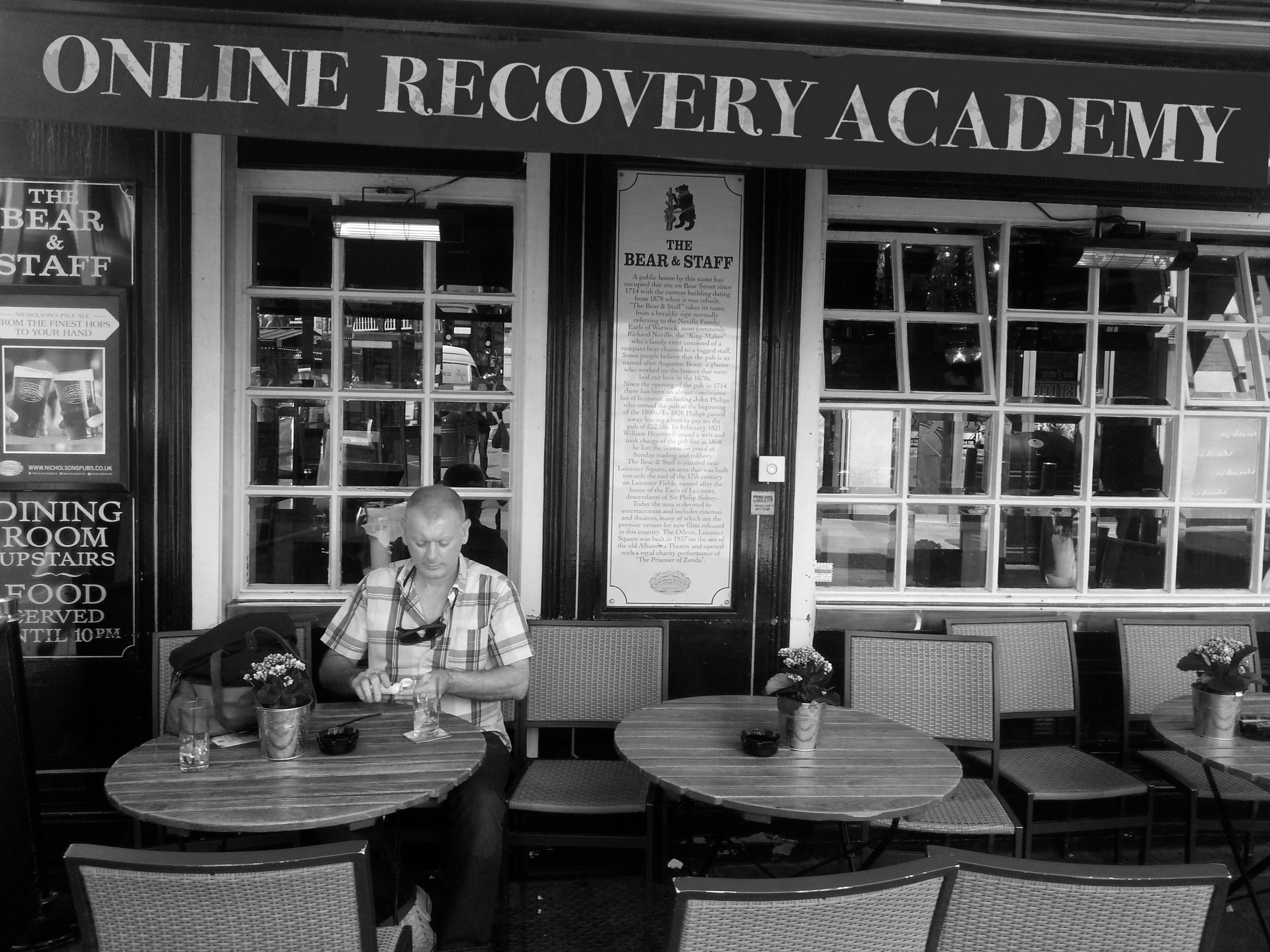After 30 years of continuous drinking and drug use I got sober. I spent the last of the little money I had on four months of residential treatment.
The only reason I took that path was because a dear friend, who had been given 6 months to live (at the age of 30) went that way. I doubt I would have done it otherwise.
The only other attempt I had made to do something about my substance use was in my 29th year of using. I went to some 12 Step Meetings and stayed sober for 30 days. When I started using again, I fragmented completely. Six months or so later, I was gently encouraged into addiction treatment by two close friends, one mentioned earlier and another I continue to trust implicitly to this day.
I went to a lot of 12 Step Fellowship meetings after leaving treatment (I still attend a few regularly), but I did a lot more besides.
I went to College (having previously dropped out of school at age 16) and got a qualification in Addiction Counselling. I took up Sculpture and Yoga, I started exercising regularly, I turned Vegetarian. I began reading philosophical and spiritual writing that I would never have entertained before. I did voluntary work for the first time in my life.
I experienced a massive change in my worldview and, consequently, in my personal belief systems.
I believe all these changes contribute to the Recovery of my life.
I tend to think about my Life, as opposed to my Recovery as I believe that the two are one and the same thing.
My personal Recovery relied on multiple methods and pathways with a common denominator: a willingness to change.
The idea for The Online Recovery Academy has been developing in my thoughts for the past 5 years, encouraged by observations and experiences with other entities both on and offline. In some cases, reference points go back many more years. ORA is an attempt to respectfully take inspiration from a number of sources and create a space where Recovery in many forms can be encountered and considered.
There are many willing collaborators involved in shaping ORA, and many more inspirational organisations and individuals whose activities continue to create a spark in our thinking. The is result is that I’ll often write blog posts in the third person and personal opinion will always be marked out as my own.
When I came across The School Of Life in London (and now elsewhere too), whilst not a Recovery resource as such, their model and curriculum got me thinking. Right now, we can only aspire to this – a bricks and mortar location, a series of courses and events, a publishing arm, therapeutic approaches, and a sense of humour – but the muse was inspired.
The next bit of groundwork was the discovery of a US NPO, Writers In Treatment. Their founder, Leonard Buschel, had started the Reel Recovery Film Festival, which continues to grow year on year and inspired us to create our own version of a Recovery Film Festival in South Africa.
I have worked with individuals in Addiction Treatment from many parts of the world. It became increasingly clear that people who wanted to recover needed resources and the most obvious and accessible resources could be sourced online. So began my research, admittedly on an ad hoc basis, and with that came numerous ‘discoveries.’ The then fledgling online magazine, The Fix, opened up a whole new source of information and viewpoints. Along the way more fantastic blogs, organisations and even official programs came on to the Recovery research radar.
I started sharing these resources with people leaving treatment. I seldom recommended specifics, but would suggest visiting a few active sites publishing and updating salient articles, as well as a few online communities I thought may address individualised needs of people in early recovery.
It has been a fascinating, yet hugely time-consuming task to keep on top of the growth in Recovery resources and attitudes. One of the most significant turning points was discovering The Anonymous People (on a crowdfunding sight). As well as screening this film at our Recovery Film Festival, I was able to connect with the filmmaker Greg Williams and found out more about the grass roots Recovery Movement in the US, as well as learning about the concept of Recovery Capital.
Social media also offered several instances of ‘Recovery culture’ gathering momentum. I started learning about Recovery initiatives in other countries, and in the UK in particular. The story of The Brink in Liverpool got us very excited, swiftly followed by Sobar in Nottingham, Redemption in London and a whole host of other café and dry bar ideas. I reserve a very soft spot for Cascade Creative Recovery in Brighton for reasons too complicated to explain here.
Inspiration veered away from Recovery and into the realms of education with the discovery of edX and a free course (or MOOC) they were offering from UC Berkley on the Psychology of Happiness. Having signed up, participated and completed the course, investigation into online learning ensued and led to Udemy. At the time, there were a handful of Quit Drinking courses. It was not until a few months later we stumbled on one of the catalysts for our own series of courses.
In January 2015, an article in The UK Guardian profiled Club Soda and it’s founder Laura Willoughby; it seemed like a full-ish circle back to The School Of Life concept, but Recovery focussed, brilliant! In turn, Club Soda took us back to Udemy via A Hangover Free Life (AHFL).
Having been living AHFL for a while the course produced by blog founder Louise was intriguing… Not of direct relevance, but it did indicate a way forward. It felt like time to make a start.
I began work on identifying courses I thought would help increase understanding of addiction, but more importantly, that would enhance the experience of Recovery by providing additional online materials, articles and resources.
It became obvious that a website would be needed to complement the courses planned, and that ORA would need to extend it’s reach through social media too.
It is a work in progress, and frustratingly imperfect, but I’ve learnt a lot about progress and perfection in the past few years. I, therefore, cordially extend you an invitation to keep coming back to the site, the social media feeds, the courses and hopefully grow, in Recovery, with us.


Publish already!